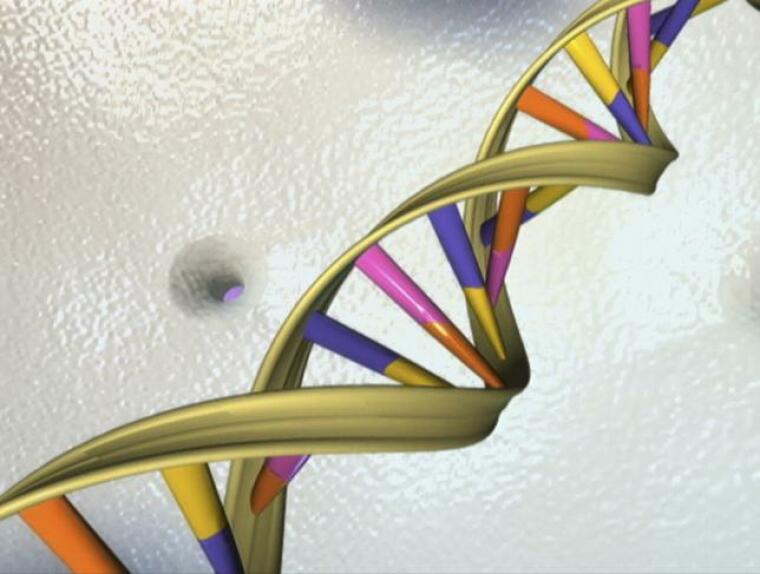Genetically engineered babies to be made using DNA from 4 parents
A team of scientists in the United Kingdom are investigating a way to create babies using DNAs of four parents amid fears of potential negative effects in the long run.
The process of transplanting DNA from one embryo to another is called Pro-Nuclear Transfer (PNT). In this process, a baby is created using the DNA of four parents since one embryo is the result of the DNA of two parents. According to The Christian Institute, the team of scientists at the Newcastle University are currently studying the process.

Humphrey Dobson, deputy director of The Christian Institute, is wary of the procedure since scientists cannot be expected to guarantee the absolute safety of the process, stressing that "problems may only arise in the generations to come."
"We should remember that what is being heralded here as 'treatment' is simply a ruthless way of screening out those deemed less worthy of life," said Dobson.
In February, the United Kingdom became the first country to legalize the three-person babies or mitochondrial DNA replacement. The procedure involves DNA of three parents wherein the third parent is the source for a healthy mitochondrion. According to Wired, there are about 4,000 babies in the United States born with a mitochondrial disease. The disease is inherited from a defect in a mother's mitochondria.
Safety, the issue of creating babies with three parents, and the dangers of genetic engineering were the top concerns raised by opponents of the transplants. The British parliamentarians voted a majority of 232 in favor of the procedure.
British Health Minister Lord Howe heralds the procedure as a source of hope for families and believes that the transplant is safe as attested by safety experts.
"It would be cruel and perverse in my opinion, to deny them that opportunity for any longer than absolutely necessary," said Lord Howe, as quoted by BBC.
"I don't believe, my Lords, in spite of what we've heard this evening, that this technology threatens the fabric of society in the slightest bit," added Lord Winston, a fertility doctor.
 Christians don't have to affirm transgenderism, but they can’t express that view at work: tribunal
Christians don't have to affirm transgenderism, but they can’t express that view at work: tribunal Archaeology discovery: Medieval Christian prayer beads found on Holy Island
Archaeology discovery: Medieval Christian prayer beads found on Holy Island Presbyterian Church in America votes to leave National Association of Evangelicals
Presbyterian Church in America votes to leave National Association of Evangelicals Over 50 killed in 'vile and satanic' attack at Nigerian church on Pentecost Sunday
Over 50 killed in 'vile and satanic' attack at Nigerian church on Pentecost Sunday Ukrainian Orthodox Church severs ties with Moscow over Patriarch Kirill's support for Putin's war
Ukrainian Orthodox Church severs ties with Moscow over Patriarch Kirill's support for Putin's war Islamic State kills 20 Nigerian Christians as revenge for US airstrike
Islamic State kills 20 Nigerian Christians as revenge for US airstrike Man who served 33 years in prison for murder leads inmates to Christ
Man who served 33 years in prison for murder leads inmates to Christ


 Nigerian student beaten to death, body burned over ‘blasphemous’ WhatsApp message
Nigerian student beaten to death, body burned over ‘blasphemous’ WhatsApp message 'A new low': World reacts after Hong Kong arrests 90-year-old Cardinal Joseph Zen
'A new low': World reacts after Hong Kong arrests 90-year-old Cardinal Joseph Zen Iran sentences Christian man to 10 years in prison for hosting house church worship gathering
Iran sentences Christian man to 10 years in prison for hosting house church worship gathering French Guyana: Pastor shot dead, church set on fire after meeting delegation of Evangelicals
French Guyana: Pastor shot dead, church set on fire after meeting delegation of Evangelicals ‘Talking Jesus’ report finds only 6% of UK adults identify as practicing Christians
‘Talking Jesus’ report finds only 6% of UK adults identify as practicing Christians Mission Eurasia ministry center blown up in Ukraine, hundreds of Bibles destroyed: 'God will provide'
Mission Eurasia ministry center blown up in Ukraine, hundreds of Bibles destroyed: 'God will provide' Church holds service for first time after ISIS desecrated it 8 years ago
Church holds service for first time after ISIS desecrated it 8 years ago Burger King apologizes for 'offensive campaign' using Jesus' words at the Last Supper
Burger King apologizes for 'offensive campaign' using Jesus' words at the Last Supper Uganda: Muslims abduct teacher, burn him inside mosque for praying in Christ’s name
Uganda: Muslims abduct teacher, burn him inside mosque for praying in Christ’s name